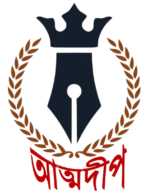Volume-I, Issue-IV, March 2025
Volume-I, Issue-IV, January, 2025 |
Received:20.03. 2025 | Send for Revised: 21.03.2025 | Revised Received: 23.03.2025 | Page No: -1060-1070 |
| Accepted: 28.03.2025 | Published Online: 31.03.2025 | ||
DOI: 10.69655/atmadeep.vol.1.issue.04W.105 | |||
টেকসই উন্নয়নের লক্ষ্যমাত্রা পূরণের পদক্ষেপ হিসাবে আদিবাসী মহিলা উন্নয়ন প্রচেষ্টা শুভেন্দু বোস, সাংবাদিকতা ও গন জ্ঞাপন বিভাগ, ইস্ট ক্যালকাটা গার্লস কলেজ, পশ্চিমবঙ্গ রাষ্ট্রীয় বিশ্ববিদ্যালয়, ভারত |
Indigenous women's development efforts as a step towards meeting the Sustainable Development Goals Subhendu Bose, State Added College Teacher, Dept. of Journalism and Mass Communication, East Calcutta Girls' College, West Bengal State University, India | ||
ABSTRACT | ||
Tribal communities are very deprived sections of society. They have remained largely excluded from various segments of development. More than 370 million people, roughly 3% of the world’s population, belong to tribal communities spread across over 70 countries. Unfortunately, these marginalised groups continue to face systemic exclusion, often experiencing violations of their rights. Poor communication and inadequate policy implementation hinder developmental efforts, directly impacting tribal livelihoods, including their occupations, social standing, financial stability, and access to education. In the modern era, tribal communities remain neglected across multiple aspects of society, such as healthcare, education, and employment. Tribal women are among the most deprived sections. Several social and cultural barriers, including lack of resources, superstitions, and deeply ingrained traditional beliefs, further obstruct their development. To address these issues, the United Nations has adopted 17 Sustainable Development Goals (SDGs) for 2030, aiming to ensure equal opportunities for education and social inclusion for tribal women while fostering their overall development. Governments and non-governmental organizations worldwide are continuously striving to secure the recognition, respect, and preservation of tribal culture, heritage, customs, language, and identity. In India, the government is committed to tribal development specially for women, implementing various policies and initiatives to eradicate poverty, promote linguistic and educational rights, and ensure social dignity for tribal women in alignment with the sustainable development agenda. This study aims to analyse the developmental programs undertaken by both government and non-government sectors to foster tribal development and social inclusion. | ||
Keywords:
|

